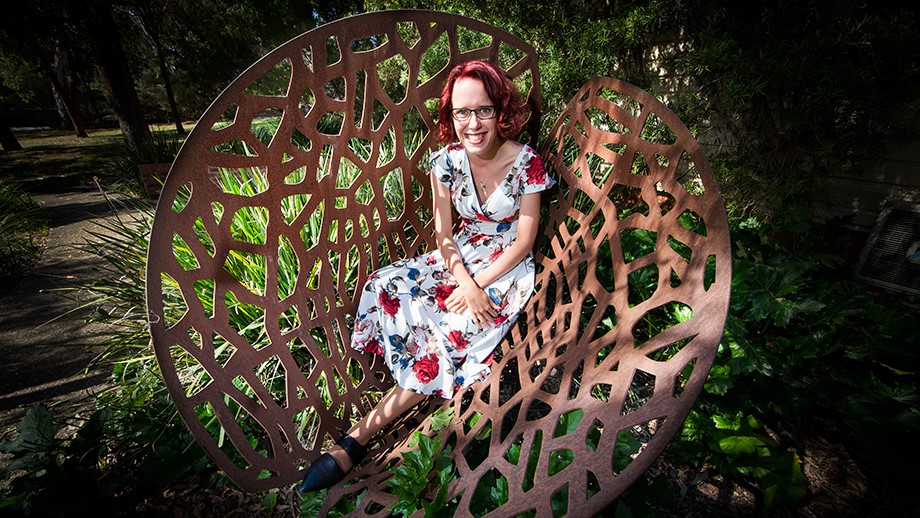PhD candidate's views sought from national mental health figureheads
ANU PhD Candidate Rebecca Randall says being involved in a national mental health leadership program meant she had an amazing experience networking with the nation’s leading experts and scholars in mental health research.
Rebecca was selected as one of 11 from over 100 applicants to take part in the National Mental Health Commission’s Future Leaders in Mental Health Leadership and Development program. She was the youngest participant and the only university student.
The program, organised by the National Mental Health Commission, was designed to upskill people already in the field of mental health but who also had experience as a consumer or carer.
“Having a severe mental illness, in my case Bipolar Disorder, changes the way you live your life – in both positive and negative ways. One of the ways I’ve been able to make sense of what I’ve gone through is through sharing my experiences and helping dispel the stigma about it,” she said.
The 25-year-old, from the National Institute of Mental Health Research at ANU, is studying how and why young people get involved in designing mental health interventions.
She says, at first, being invited into the program was scary given she was the only student participating.“Being 23 and still very new to the sector when the program started meant that I didn’t have much real world experience, which was a challenge and a bit scary,” she said.
“However, it meant that I was able to learn a lot from the years of experience in the field that the other members had.
“I was 23 when I started the program and I’m 25 now which meant that I got a tremendous amount out of it.
“I was able to hang out with people who have Orders of Australia and people who were national mental health commissioners and to really learn from them.
“I was also the only researcher in the program, so it was a chance to understand how my research can have real world implications and can help inform the mental health sector. It also gave me some invaluable ideas for future career moves, particularly if I want to move out of the research field.
”The National Institute of Mental Health Research at ANU is a big supporter of combining the lived experience of mental health with the research, Rebecca said.
“And it was a chance to really see how that plays out on a policy field, and to get outside of the world of research and to understand the importance of research and how, as researchers, we can feed that back into a real world context,” she said.
Now in the third year of her PhD, she says she’ll soon begin looking at career opportunities locally and overseas.
“As young people, and as students, it’s so easy to think that we don’t have anything to contribute to national programs such as this one – but as my experience shows, we do, and I’m so glad I took the leap and applied for it.
”To become involved in improving young people’s mental health – check out the uniVirtual Clinic or the Young and Well Cooperative Research Centre websites.

